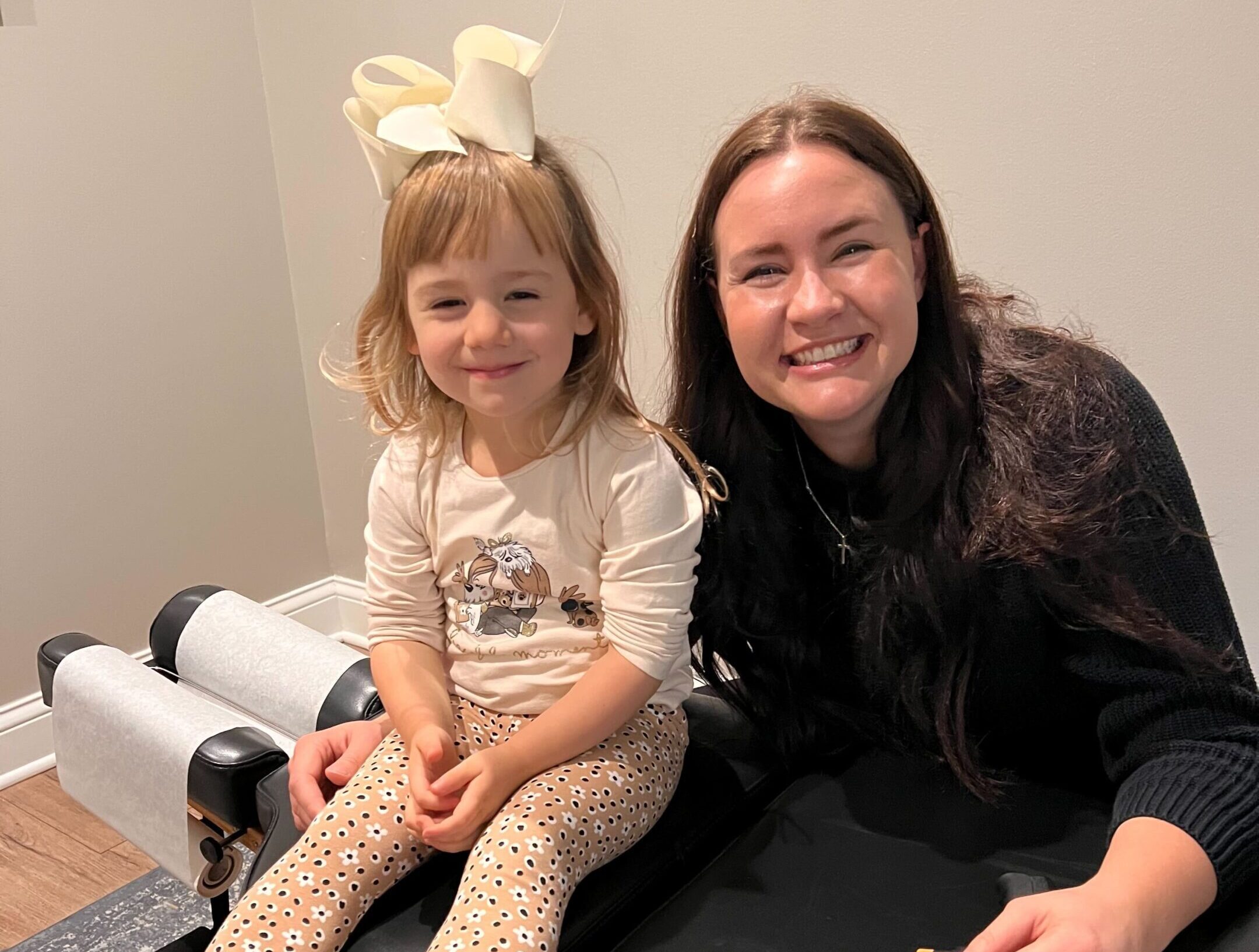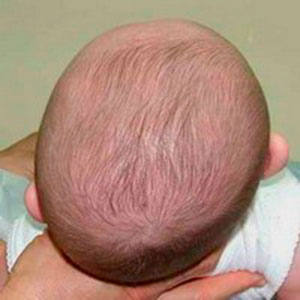When you first notice that your baby’s head is slightly misshapen, it’s only natural to worry. Plagiocephaly, often known as flat head syndrome, can raise many questions.
One of the biggest concerns for parents like you is whether this condition might lead to speech delays. You may wonder if your child’s future ability to communicate is at risk. This topic touches on something deeply personal and important—your child’s development and well-being.
Understanding the connection between plagiocephaly and speech development could provide the reassurance you need or perhaps motivate you to take action. So, let’s dive in and explore whether plagiocephaly could impact your child’s speech and what you can do about it.

Credit: pxdocs.com
Understanding Plagiocephaly
Plagiocephaly is a common condition in infants. It involves the flattening of a baby’s skull. Parents often notice it in the first few months. The skull may be misshaped or asymmetrical. Understanding this condition is crucial for parents. It helps in ensuring proper care and intervention.
Definition And Types
Plagiocephaly is the flattening of one part of the skull. There are two main types: positional and congenital. Positional plagiocephaly happens due to external pressures. It often occurs when a baby sleeps in one position. Congenital plagiocephaly is less common. It results from abnormal skull formation before birth.
Causes And Risk Factors
Several factors contribute to plagiocephaly. A baby sleeping in one position for long periods is a common cause. Limited movement in the womb can also affect skull shape. Premature infants are at higher risk. Their skulls are softer and more prone to deformation. Torticollis, a condition where the neck muscles are tight, may also lead to plagiocephaly.
Prevalence In Infants
Plagiocephaly is quite common in infants. Studies suggest it affects up to 30% of babies. The condition is more noticeable in the first few months. Early detection is key. Parents should consult healthcare providers for proper guidance.

Credit: www.physio-pedia.com
Symptoms And Identification
Understanding the symptoms and identifying plagiocephaly is crucial for parents. Early recognition can help address potential developmental concerns. This condition involves a noticeable flat spot on a baby’s head. Some worry that it might affect speech development. Let’s explore the physical signs and know when to seek medical advice.
Physical Signs
Plagiocephaly often shows through an uneven head shape. You may notice a flat area on one side of the head. The ears might appear misaligned. In some cases, facial asymmetry becomes evident. Look for a tilted or uneven jawline. Babies might favor turning their head to one side. Limited neck movement could also be present.
When To Seek Medical Advice
Consult a doctor if you notice any physical signs. If your baby’s head shape doesn’t improve, seek help. A healthcare professional can provide guidance. Also, if your baby shows developmental delays, reach out. Early intervention can prevent further issues. Trust your instincts as a parent. If something feels off, it’s best to ask a specialist.
Potential Impacts On Development
Plagiocephaly is a condition where a baby’s head has a flat spot. Parents often worry about its impact on development. Many wonder if it can lead to speech delays. Let’s explore how plagiocephaly might affect growth in various areas.
Cognitive And Motor Skills
Children with plagiocephaly may experience challenges in cognitive development. The shape of the skull can influence brain growth. This might affect how a child learns and processes information. Motor skills can also be impacted. Delays in crawling or walking are possible. The position of the head might affect muscle development.
Speech And Language Development
Speech and language skills might be affected by plagiocephaly. The condition can influence auditory processing abilities. Hearing plays a big role in language learning. Delays in speech might occur if auditory processing is affected. Proper head shape supports optimal ear function. This aids in clear sound reception and speech development.

Credit: brainwave.watch
Exploring The Link To Speech Delay
Parents often worry about their child’s speech development. Understanding the factors influencing it is essential. One concern is whether plagiocephaly, a flat spot on a baby’s head, can impact speech. This section delves into the possible connection between plagiocephaly and speech delay. It’s crucial to understand how this condition might affect a child’s communication abilities.
Scientific Studies And Findings
Research explores the relationship between plagiocephaly and speech delay. Studies show varied results. Some suggest a link between head shape and language skills. Others find no direct connection. The studies often focus on brain development. A few explore how head shape might affect learning. Researchers aim to uncover if altered brain growth impacts speech.
Expert Opinions And Insights
Experts provide valuable insights into plagiocephaly’s effects. Pediatricians emphasize monitoring developmental milestones. Speech therapists offer guidance on language progress. They suggest early intervention for any delays. Experts recommend observing communication skills closely. They stress the importance of personalized assessments. This helps determine if plagiocephaly affects speech.
Diagnosis And Assessment
Understanding the connection between plagiocephaly and speech delay is essential for parents concerned about their child’s development. The diagnosis and assessment process is critical in identifying potential issues early on. By focusing on a thorough evaluation, you can ensure your child receives the support they need.
Medical Evaluation Techniques
Medical evaluation is the first step in assessing plagiocephaly. Doctors use various techniques to examine your child’s head shape. They may use imaging tools like ultrasound or X-rays to look closely at the cranial structure. These tools help pinpoint any abnormalities and determine their severity.
Simple observation is also key. Doctors often check for asymmetry in the head shape visually. By measuring and comparing different parts of the skull, they can assess whether intervention is needed.
Role Of Pediatricians And Specialists
Pediatricians are usually the first professionals you consult for concerns about plagiocephaly. They can provide initial assessments and refer you to specialists if needed. Their role is crucial in guiding you through the diagnosis process.
Specialists like pediatric neurologists or developmental pediatricians offer deeper insights. They evaluate not just the physical aspects but also possible developmental impacts. If you suspect speech delays, these specialists can assess whether the condition might be contributing to such issues.
Have you ever wondered how early intervention might change your child’s developmental trajectory? Early evaluations can lead to timely treatments, minimizing the risk of speech delays or other developmental concerns.
Remember, acting sooner rather than later can make a significant difference in your child’s life. By engaging with pediatricians and specialists, you equip yourself with the knowledge to address potential challenges head-on.
Treatment And Management
Plagiocephaly, a condition where a baby’s head is flattened, can worry parents. Concerns often arise about potential speech delays. Addressing these concerns involves understanding treatment and management options. Effective management helps in minimizing risks associated with plagiocephaly. Early intervention plays a crucial role in ensuring healthy development.
Therapeutic Interventions
Therapeutic interventions focus on correcting head shape and supporting development. Physical therapy is often recommended for infants with plagiocephaly. Therapists guide exercises that encourage proper head movement. These exercises can strengthen neck muscles and improve symmetry. In some cases, helmet therapy might be advised. Helmets help mold the baby’s head into a more rounded shape. Consistent monitoring by healthcare professionals ensures progress is on track.
Parental Involvement And Support
Parental involvement is vital in managing plagiocephaly effectively. Parents should follow therapist instructions for home exercises. Regular positioning changes can also aid in treatment. Engaging with support groups offers emotional and practical guidance. Connecting with other parents can provide valuable insights and encouragement. Educating oneself about the condition empowers parents to make informed decisions. This proactive approach supports the child’s overall development and well-being.
Preventive Measures
Parents often worry about their baby’s health and development. Plagiocephaly, or flat head syndrome, can concern many. Ensuring your child avoids developmental issues like speech delay requires preventive measures. These measures focus on early intervention and consistent care. By implementing best practices, parents can support their child’s growth and development.
Best Practices For Parents
Parents can adopt simple strategies to help prevent plagiocephaly. Regularly change your baby’s head position during sleep. Alternate the direction they face in the crib. This prevents constant pressure on one part of the skull. Hold your baby often. Limit time in car seats and bouncers. Encourage tummy time when the baby is awake. Tummy time strengthens neck muscles. It also helps with skull shaping.
Engage your baby with toys and sounds. This encourages movement and head turning. Ensure your baby gets regular check-ups. Discuss any concerns with your pediatrician. Early advice can make a big difference.
Early Detection And Action
Detecting plagiocephaly early is crucial for effective action. Parents should monitor their baby’s head shape from birth. Notice any flat spots or asymmetry. If you see changes, consult your pediatrician quickly. Early detection allows for timely interventions. This reduces the risk of developmental delays.
Healthcare professionals may suggest physical therapy or helmet therapy. These treatments can correct head shape. They also support normal development. Parents play a vital role in early detection. Stay observant and informed about your child’s growth milestones.
Future Research Directions
Understanding the link between plagiocephaly and speech delay needs more research. Scientists are eager to explore new areas that can help us understand this connection better. Future research directions promise to offer deeper insights into how plagiocephaly might affect speech development.
Areas For Further Study
Research can look into how plagiocephaly impacts brain development. Understanding brain changes can reveal how speech delay occurs. Long-term studies can show patterns in speech development in affected children. Gathering data from diverse groups can help in understanding the broader impact. Researchers can also investigate genetic factors related to plagiocephaly. Exploring environmental influences might uncover causes that are currently unknown.
Innovations In Treatment
New treatments are being developed to address plagiocephaly. Innovative therapies might improve brain function, aiding speech development. Early intervention programs can offer guidance to parents and caregivers. Advanced imaging techniques can help in early detection of developmental issues. Collaborative efforts between medical professionals can lead to better treatment strategies. Research can also focus on non-invasive treatments to enhance comfort for children.
Frequently Asked Questions
Does Plagiocephaly Affect Speech?
Plagiocephaly doesn’t directly affect speech development. Some studies suggest potential delays due to associated issues. Early intervention and therapy can help. Always consult a healthcare professional for personalized advice.
Can Plagiocephaly Cause Learning Disabilities?
Plagiocephaly typically does not cause learning disabilities. Most children with plagiocephaly develop normally. Consult a healthcare professional for personalized advice. Early intervention can help address any concerns.
What Is The Most Common Cause Of Speech Delay?
The most common cause of speech delay is hearing loss. It affects a child’s ability to understand and produce speech. Early detection and intervention can significantly help in addressing this issue. Other factors include developmental disorders, lack of stimulation, or emotional disturbances.
Always consult a specialist for accurate diagnosis.
What Are The Long-term Effects Of Plagiocephaly?
Long-term effects of plagiocephaly can include facial asymmetry and potential developmental delays. Early intervention and treatment often prevent complications. Regular monitoring helps ensure normal growth and development.
Conclusion
Plagiocephaly’s impact on speech delay remains uncertain. Each child’s development is unique. Regular check-ups can help track progress. Early intervention can be beneficial if needed. Parents should observe their child’s speech milestones. Consult healthcare professionals for any concerns. They provide guidance tailored to your child’s needs.
Addressing any developmental issues early can make a difference. Stay informed and proactive about your child’s health. Understanding and support are key to helping your child thrive. Always prioritize your child’s well-being.

